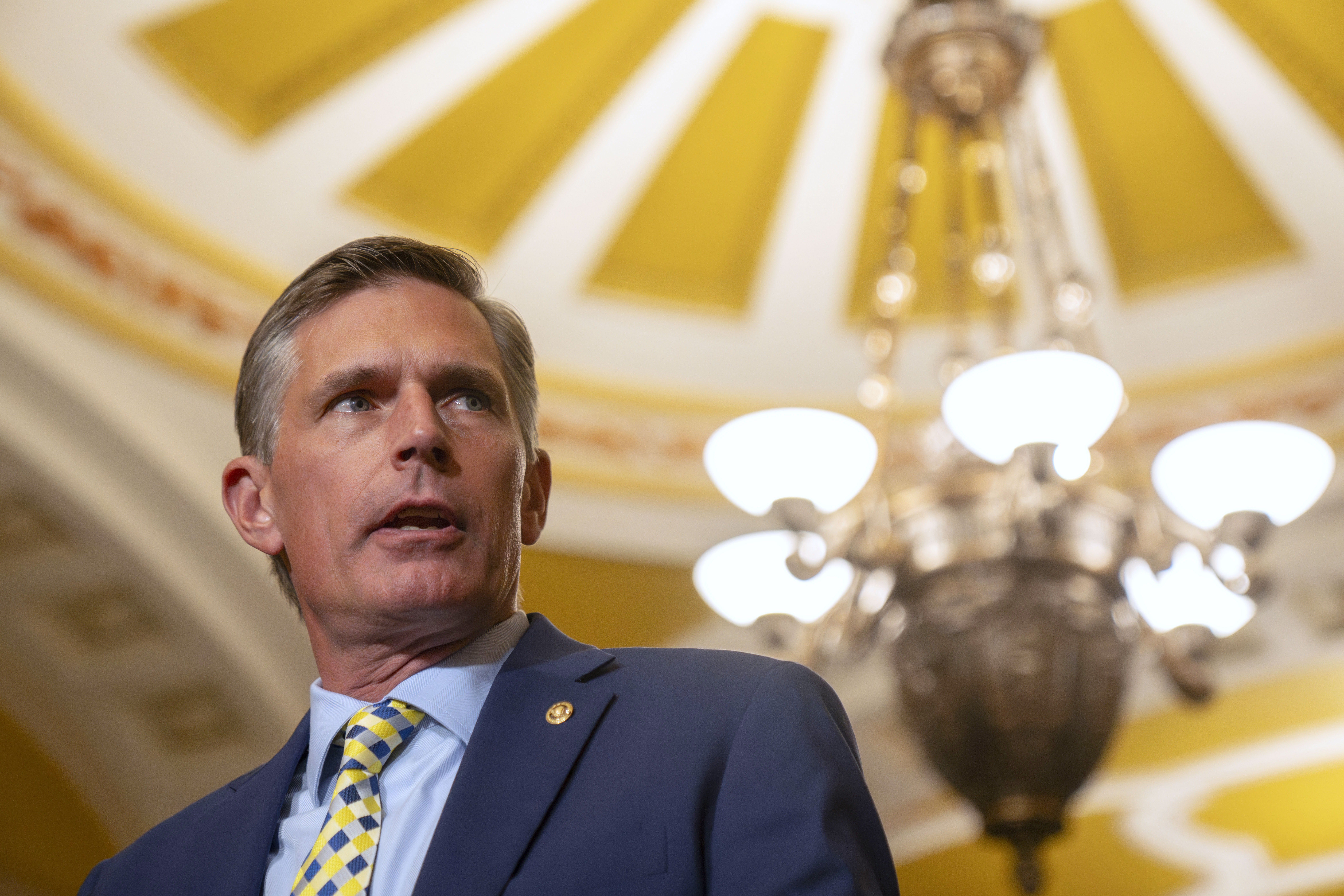Democrats last year hailed the passage of the first gun safety legislation in decades. Now, several of them are tearing into the administration over the measure’s effect on … school archery programs.
As the law goes into effect, a rift has emerged between the Biden administration and rural-state Democrats. They’re at odds over guidance issued by the Department of Education which states that a pot of federal dollars would be prohibited from going to school archery and hunting programs.
The guidance angered Democrats from red states, where those programs are popular in schools. It also has agitated Republicans who helped negotiate the gun safety legislation. Both argue the Education Department is misinterpreting Congress’ intent and that the administration has shown little willingness to work on the issue.
“The Department of Education is just over their skis on this and has not been channeling congressional intent,” said Sen. Martin Heinrich (D-N.M.). The agency “has been more than a little tone-deaf on this and not as responsive as I would like to see.”
The debate that has ensued is now cutting at a longtime intraparty divide between Democrats from states with a long heritage of hunting and the more progressive corners of the party that back strict gun control measures.
Beyond Heinrich, Democrats who signed on to a recent letter asking the Education Department to reconsider their read of the law include Sens. Tammy Baldwin of Wisconsin, Tim Kaine of Virginia, Amy Klobuchar of Minnesota and Bob Casey of Pennsylvania — all of whom are up for reelection this year. Sen. Jon Tester of Montana, one of the most vulnerable Democrats in a red state, similarly called any reduction in support for the programs “unacceptable.”
Under the Bipartisan Safer Communities Act, schools are prohibited from using a certain pot of federal education dollars — money from the Elementary and Secondary Education Act of 1965 — “for the provision of or training in the use of a ‘dangerous weapon.’”
The Education Department has stressed that the law doesn’t prohibit shooting or archery programs from being supported through other sources of funding; just from ESEA dollars. Moreover, the Biden administration says that, so far, no school has actually been denied funding over the law’s language.
But rural state lawmakers say they fear an overzealous reading of the law. Those who worked on the bill say the dangerous weapon prohibition was intended to ensure schools didn’t use the funding to arm teachers with guns, a controversial proposal some have put forward to respond to school shootings.
Prohibiting school programs “was never discussed in the negotiations,” said Sen. John Cornyn (R-Texas) who blasted the White House for derailing a bipartisan piece of legislation. “The Biden administration can screw up a two-car funeral.”
Republicans warn that the conflict has degraded trust in how future bipartisan bills would be enacted under a Democratic administration.
“This is the sort of stuff that makes people who would be inclined to support the policy say, ‘but I can’t trust the administration,’” said Sen. Thom Tillis (R-N.C.), one of the chief negotiators on the bill. “I’m frustrated with this. This was not an easy bill to get bipartisan support on.”
Tillis said he and others are “angry” over the reading of the law and hoped to chalk it up to the Education Department’s misunderstanding of congressional intent.
“We’re hoping we can get a response from them. Otherwise, we’ll try to figure out ways to make life uncomfortable for a while,” he said, without revealing specifics.
An Education Department spokesperson said the administration “will continue to offer technical assistance to help Congress address this statutory language issue.”
Several Democrats expressed hope that the Education Department would change its tone once lawmakers clarified what their intention was with the bill.
“We ought to be able to fix this and I hope that the administration will look at this letter from both Democrats and Republicans, including folks that are very friendly to the DOE and say, ‘Okay, maybe we can calibrate this better,’” Kaine said.
Sen. Chris Murphy (D-Conn.), one of the chief negotiators on the gun safety bill, acknowledged the administration is reading the letter of the text correctly but called it an unintended consequence that should be repaired.
He said a bipartisan bill is in the works that would make “absolutely clear that money can be used for programs like archery” and he hopes it can be included in an upcoming government funding bill.
Several Republicans — including many who didn’t support the law — aren’t going to wait for that to happen.
Sen. John Barrasso (R-Wyo.) introduced a bill to explicitly say the dangerous weapons provision doesn’t apply to student sports and teams. Reps. Mark Green (R-Tenn.) and Richard Hudson (R-N.C.) introduced a similar bill in the House.






